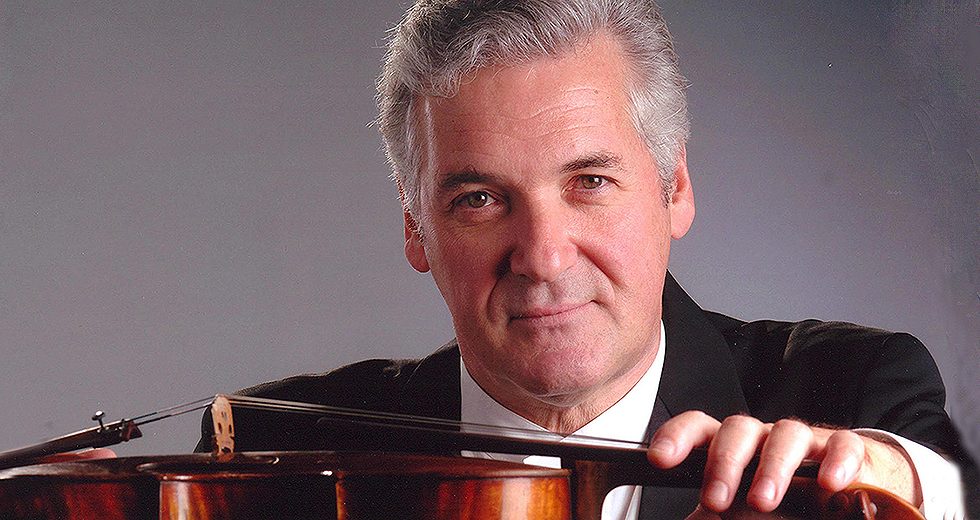
In the classical-music world, Pinchas Zukerman has long been a solo superstar whose virtuosity is matched by only a small handful of contemporaries. While the conductor-instrumentalist is well aware of his elevated status, he is also a respectful and eager collaborator — be it with an ensemble or his wife, the cellist Amanda Forsyth.
For an SCP Chamber Music concert Oct. 7, Zukerman will share the stage with Forsyth and the Jerusalem Quartet (a member of which, violist Ori Kam, is a former student of his). The resulting sextet, with Zukerman on viola, will perform works by R. Strauss, Schoenberg and Tchaikovsky.
“I don’t know what ego means, actually,” Zukerman, 70, said in a recent conversation. “I think it’s really superfluous. It’s a kind of artificial word. You don’t want to be overwhelming people onstage. That’s silly, because music is not like that. One line goes into the other line. It’s a kind of figure-8 situation, if you can imagine that. And that’s what music is about. It’s making people play better. It’s making me play better if they play better. It’s a camaraderie that takes a lot of work and a lot of patience.”
Not surprisingly, Zukerman’s collaborative process has evolved over the past five decades as he himself has evolved from young hot shot to elder statesman.
“I open up my ears all the time,” he says. “I look around. You hear more. You see more. You share more if it’s so needed at the time when you’re rehearsing and playing. What’s wonderful in this particular case is we’re playing music that’s really extraordinary.”
They’ll begin with the String Sextet from Capriccio, part of Strauss’ final opera and finished in 1941. Next up is Schoenberg’s Transfigured Night, composed in 1899 before he adopted his 12-tone method. Tchaikovsky’s Souvenir de Florence, penned in mid-1890, caps the evening.
In talking of his professional chemistry with Forsyth — they’ve been together since 1997 and married since 2004 — Zukerman dismisses any notion of competition between them. Just as playing with an ensemble like the Jerusalem Quartet is a process of give and take, so it is with his wife.
“Our musical entity, per se, only developed and got stronger as we became a couple,” he says. “She’s a right-in-your-face kind of person. She tells you exactly what she thinks. She’ll tell me, ‘That’s out of tune,’ and that’s it. She does it with everyone, and I think that’s good. And she’s also expecting me or any colleagues [to say], ‘Amanda, can we try that [again], because it doesn’t sound that good.’ It’s a kind of back-and- forth situation that takes place, which is very unusual. You don’t get that strong a player often enough where you can just say, ‘I’m sorry, that’s not good enough; we can’t do this,” and they don’t take it personally.”
In the end, it’s the music that matters most — far more than ego stroking or accolades.
“My journey has been over 55 years,” Zukerman says, “and I hope to continue for a long time to come, and I’ll do it in any shape or form. I’ll do it with this one. I’ll do it with that one. There’s no such thing as playing second fiddle or third fiddle or fourth fiddle or whatever. It’s ridiculous. And if you don’t feel that way, then go away and leave us alone. We’ll find somebody else.”
Mike Thomas, a Chicago-based writer, is the author of the books You Might Remember Me: The Life and Times of Phil Hartman and Second City Unscripted: Revolution and Revelation at the World-Famous Comedy Theater.